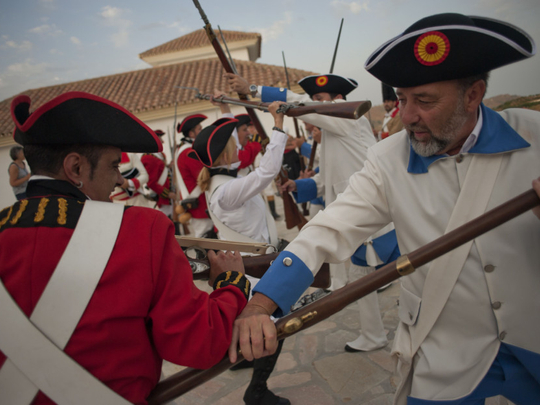
There are aspects of the American Revolution that are neither well known nor appreciated. To be sure, the signatories to the Declaration of Independence were brave and great men, as ex-slave, abolitionist and fiery orator Frederick Douglass acknowledged in his July 5, 1852, speech in Rochester, New York. But Douglass, noting slavery’s continued existence 76 years after the first Independence Day, advised the crowd: “This Fourth of July is yours, not mine.”
“What, to the American slave,” asked Douglass, “is your Fourth of July?” Douglass said that the “rich inheritance of justice, liberty, prosperity and independence, bequeathed by your fathers, is shared by you, not by me”.
Douglass’ denouncing the injustice of slavery in the midst of a celebration of liberty is now a storied event.
But less understood or appropriately recognised during most July 4 celebrations is that the American Revolution, although not fought on behalf of slaves, was not a whites-only undertaking.
The political freedom resulting from the war was earned on battlefields at Lexington and Concord, at the Battle of Bunker Hill and beyond, with the help of black soldiers, both free and enslaved, who fought with the Continental Army.
The Revolutionary War victory was every bit theirs, as well.
At least 20 blacks were among the ranks of the rebels when the British launched their attack on the American position outside Boston in the Battle of Bunker Hill.
Peter Salem, born a slave in Framingham, Massachusetts, earned his stripes as a minuteman fighting at Concord and later at Bunker Hill. Salem is credited with firing the shot that killed British Major John Pitcairn, who led the Redcoats when they attacked at Lexington.
Getting into the fight was not easy for Salem or other blacks at the time. At the start of the war, George Washington opposed the recruitment of blacks, whether free or slave. Washington had plenty of company. Many slave owners considered the training and arming of slaves akin to inviting insurrection. But they soon found that there weren’t nearly enough white men willing and able to fight the British, so Washington relented.
Salem fought in other battles, and after the war, lived in a cabin and worked as a cane weaver. He died in a Framingham poorhouse in 1862.
Twenty years later, the town erected a monument in his honour.
Former slave Salem Poor was also at the Battle of Bunker Hill. His service drew the praise of 14 officers who petitioned the Massachusetts legislature to grant him a reward. They wrote “that a negro man called Salem Poor, of Colonel Frye’s regiment, Captain Ames’ company, in the late Battle at Charlestown, behaved like an experienced officer, as well as an excellent soldier. To set forth the particulars of his conduct would be tedious, we would only beg leave to say that in the Person of this said negro centres a brave and gallant soldier. The reward due to so great and distinguished a character, we submit to the Congress”.
It was not to be. Poor died in a Boston shelter for the homeless in 1802.
Saul Matthews was a slave when he enlisted as a soldier in the Virginia militia, according to the Colonial Williamsburg Foundation. Matthews served as a spy, undertaking missions into British camps to collect information on troop positions and movements. He, too, drew praise from top leaders of the Revolution.
When the war ended, Matthews was returned to slavery for nearly 10 years. He petitioned the Virginia General Assembly for his freedom. It was granted in 1792.
The 1st Rhode Island Regiment, called the “Black Regiment” because of its large number of African-American soldiers, engaged in five years of fighting in New York, New Jersey and Virginia. Christopher Greene commanded the 1st Rhode Island Regiment until 1781, when he and many of his black soldiers were killed in a skirmish with loyalists. Greene’s wounded body was reportedly dragged from his house into the woods and mutilated as possible punishment for having led black soldiers.
After the war, as the Army’s official website reports, some black soldiers, like those who served in the 1st Rhode Island, went on to live as freed men. However, many others, after having fought for freedom, were returned to slavery.
Frederick Douglass’ “This Fourth of July is yours” assertion was biting oratory. But in helping to earn America’s freedom, the black soldiers of the Revolution have made the Fourth of July all of America’s.
The nation should salute them, too.
— Washington Post
Colbert I. King is a Pulitzer Prize-winning columnist.







